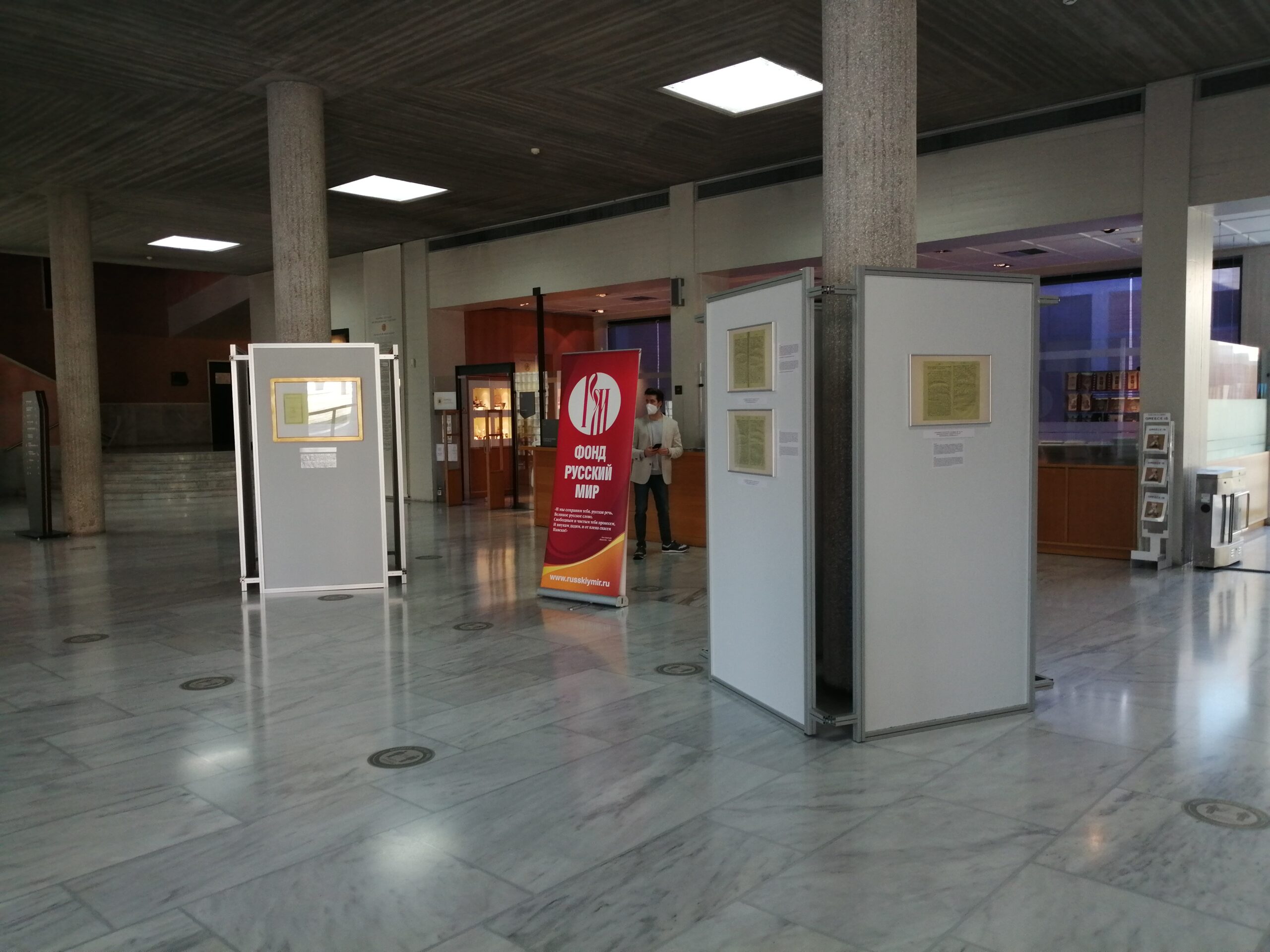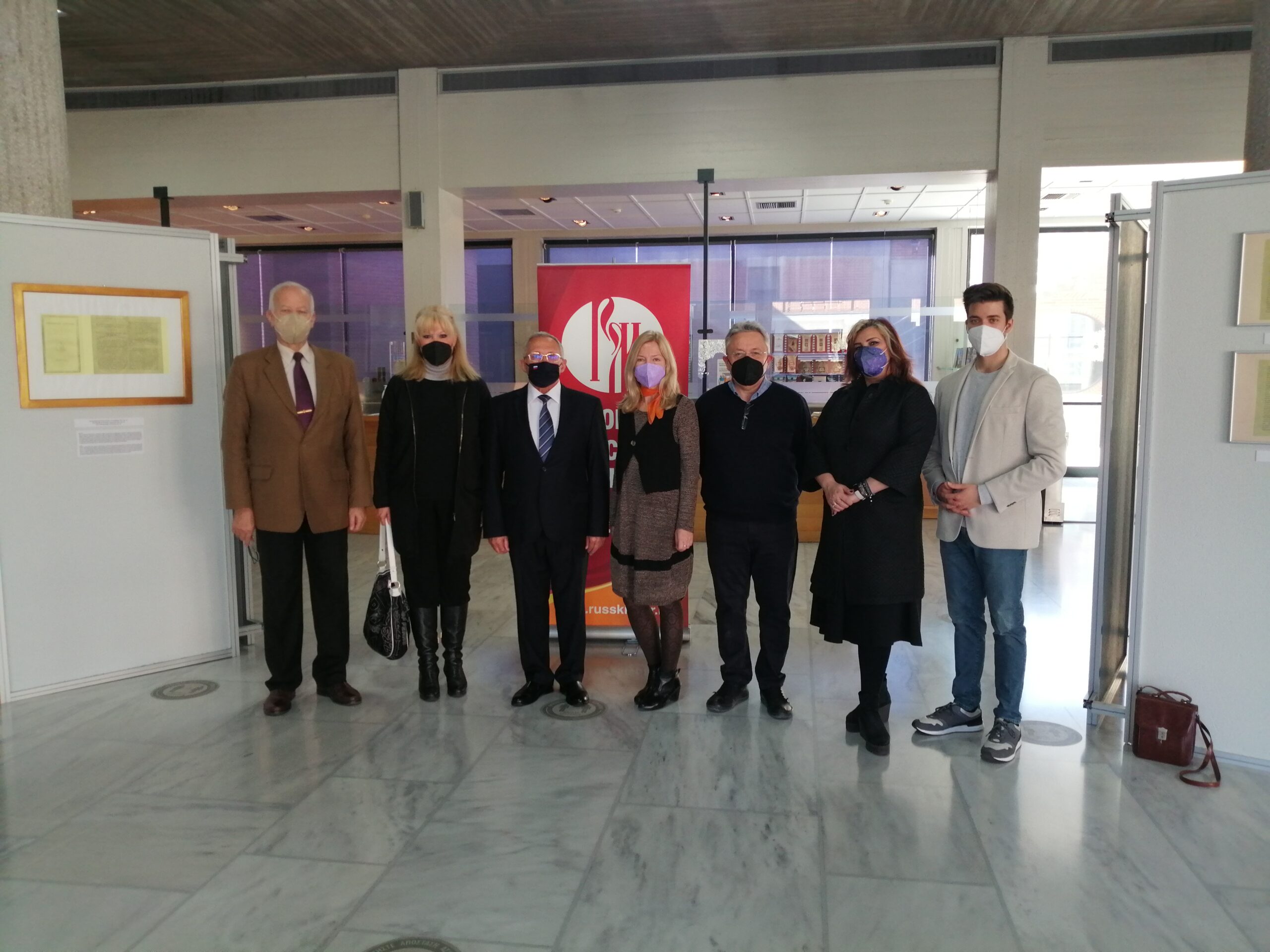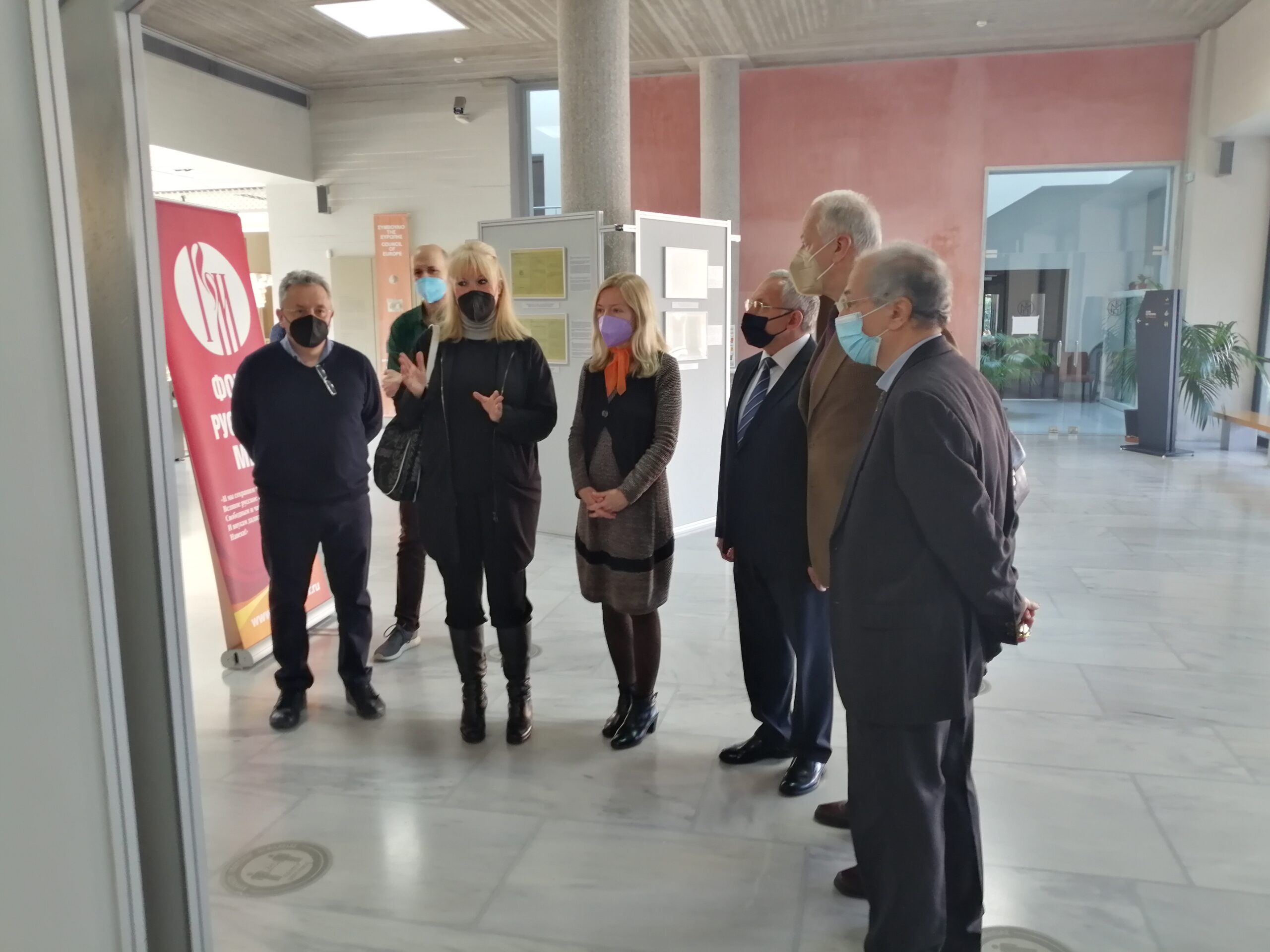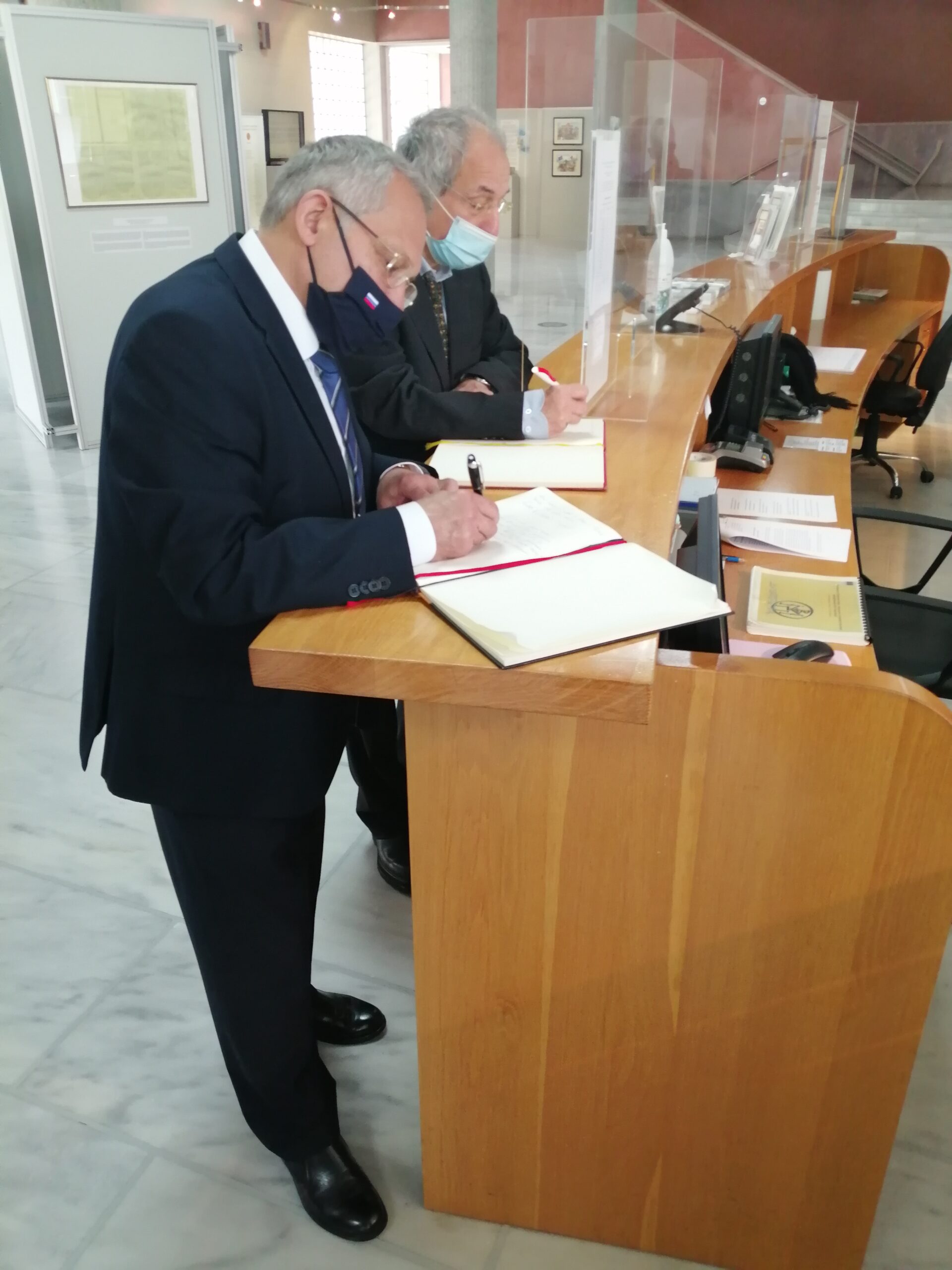
The Greek Revolution in the Russian Press of 1821
01.02.2022 - 28.02.2022
The Museum of Byzantine Culture informs you that in the reception area (foyer) hosts a temporary exhibition which concerns the presentation by the Russian press of the era of the Greek Revolution of 1821.
In 2021, Greece celebrated the 200th anniversary of the beginning of the National Liberation Revolution of 1821.
The exhibition “The Greek Revolution in the Russian Press of 1821”, dedicated to the Year of Greek-Russian History, presents pages from the section “Politics” of three very famous and popular journals of St. Petersburg from the collection of the National Library of Russia- the “Viewer of Nievsky Avenue”, the “Messenger of Europe” – and the “Son of the Homeland”.
The journal “Viewer of Nievsky Avenue” was being published in St. Petersburg on a monthly basis from January 1820 to June 1821. A total of 18 issues were published, consisting of 6 parts. The official publisher of the journal was Ivan Matveevich Snitkin, a graduate of the Moscow University. From January to April 1820, the journal was co-published by the well-known Russian romantic poet Küchelbeker, who bequeathed us a masterpiece of heroic lyrics – the “Greek Song” (1821), dedicated to the Greek Revolution.
The “Messenger of Europe” was a journal dedicated to European literature, politics, philosophy and culture – the oldest Russian journal founded in 1802 by the great Russian historian and poet Karamzin.
Already in the first issues of Karamzin’s “Messenger of Europe”, it was discovered that political unity was the basis and main essence of the journal.
The “Son of the Homeland” was a 19th-century Russian historical, literary, and socio-political journal published in St. Petersburg from 1812 to 1852 (intermittently) that influenced the development of social thought and literary life in Russia.
The exhibition is organized in collaboration with the Russian Center of Thessaloniki, the National Library of Russia, the Museum of Byzantine Culture, the Writers’ Union of Northern Greece and under the auspices of the Consulate General of Russia in Thessaloniki and the Worldwide Saint Petersburg Club.
Exhibition Location
Reception Hall (Foyer) of Museum of Byzantine Culture






